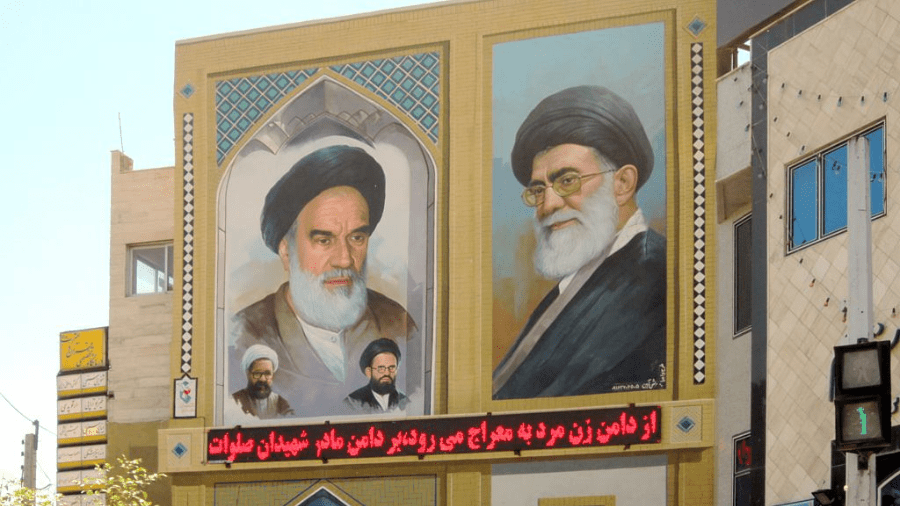This article originally appeared in the National Post.
By Shuvaloy Majumdar and Becca Wertman-Traub, December 21, 2022
What is the leading export of Russia, Pakistan and Iran? Terrorism.
While it’s not new for authoritarians to delegate their dirty work to proxies, these countries deploy state terror as statecraft, increasingly taking advantage of a distracted and disengaged West. Taking responsible measures to confront this practice necessitates an understanding of how these regimes use proxies to threaten international security.
History is also key. In 1648, at the end of the Thirty Years’ War, the Westphalia treaties gave rise to the concepts of nation-states and religious freedom. Yet today, language, religion and ethnicity fuel a neo-imperialism from authoritarian leaders who repudiate the international system of state-to-state relations that was conceived at Westphalia.
Throughout the Cold War, the West experimented with covert statecraft, which pushed conflict underground, away from the catastrophe of nuclear war. Today, countries like Russia and Iran prolong the Cold War paradigm of covert operations, deploying proxy forces while falsely claiming equivalence with the West.
Examples include Russia inventing the fiction that the United States organized Ukraine’s 2004 Orange Revolution and Iran’s specious accusation that the U.S. and Israel engineered the recent protests. Pakistan, meanwhile, leverages its western relations — despite its economy now under the thumb of Beijing’s Belt and Road hegemony — to pursue its colonial schemes on Afghanistan.
Today, asymmetric conflicts outside this system of nation-states perplex western democracies and paralyze decision-makers. But by understanding that practically all non-state actors have a state sponsor, western leaders can end the charade and start holding the responsible countries accountable.
The Ukraine War is just the latest unprovoked aggression on the part of Russia, which used a bogus rationale for using military force against it — just as it did in Georgia, Syria, Libya and the Central African Republic (CAR).
Russia has also consistently exploited the West’s inability or unwillingness to confront the source of proxy wars. For example, Russian-backed mercenaries the Wagner Group have inserted themselves into the United Nations-mandated European Union-training mission of CAR military forces, providing a separate cohort of troops with military training that are free of western-mandated “civilian controls.”
As detailed by Columbia University’s Kimberly Martin, the result is a brutal Russian stronghold in an African country, under the patronage of the UN and the West. The West is aware of the Wagner Group’s savagery, but for years has looked the other way. This approach has arguably cost countless civilian lives.
In Afghanistan, after $18 billion spent, 165 Canadian lives lost and thousands of soldiers injured, Canada and the West’s response to the Taliban’s takeover has been to leave allies we once supported to fend for themselves. The supposed rationale is that reinstating western troops would not be possible — as if that were the only option against Taliban terrorists.
As for Pakistan’s influence, Michael Kugelman writes in Foreign Policy magazine that, “For nearly two decades, Pakistan provided safe havens to Taliban leaders and medical facilities for wounded fighters. This assistance helped sustain the Taliban, even as they lost thousands of foot soldiers.”
In fomenting terrorism, Pakistan’s Inter-Services Intelligence agency is analogous to Iran’s Islamic Revolutionary Guard Corps. Both countries possess proxy forces, the former with the Taliban, the latter with Hezbollah.
The West’s failure to hold non-state actors accountable extends to terrorist organizations, such as Palestinian Islamic Jihad, Hamas, the Popular Front for the Liberation of Palestine and Hezbollah, all of which are dedicated to the destruction of the Jewish state.
Like the Wagner Group and the Taliban, these organizations obfuscate their non-state nature to evade international law and the repercussions of violating it. Terror groups lob rockets targeting Israeli civilians, divert humanitarian aid from the Palestinian population and condone violence against Israeli Jews, Druze, Muslims and Christians.
While Israel is held to the highest standards of international law in its efforts to combat terrorism, these non-state terrorists use human shields without repercussion.
Iran should be held accountable for financing attacks that target innocent civilians. Ismail Haniyeh, Hamas’ senior political leader, praised Iran for enabling Hamas’ bombardment of Israel in May 2021, yet some western states are still pursuing a renewed nuclear agreement with the Islamic Republic.
It’s not too late for Canada and its allies to take the kind of robust measures that will make our world safer. But this means shutting down the terror trade coming from Moscow, Islamabad and Tehran.
Shuvaloy Majumdar is Munk senior fellow and heads the Foreign Policy & National Security Program at the Macdonald Laurier Institute. Becca Wertman-Traub is the director of research at the Centre for Israel and Jewish Affairs, the advocacy agent of Jewish federations across Canada.






